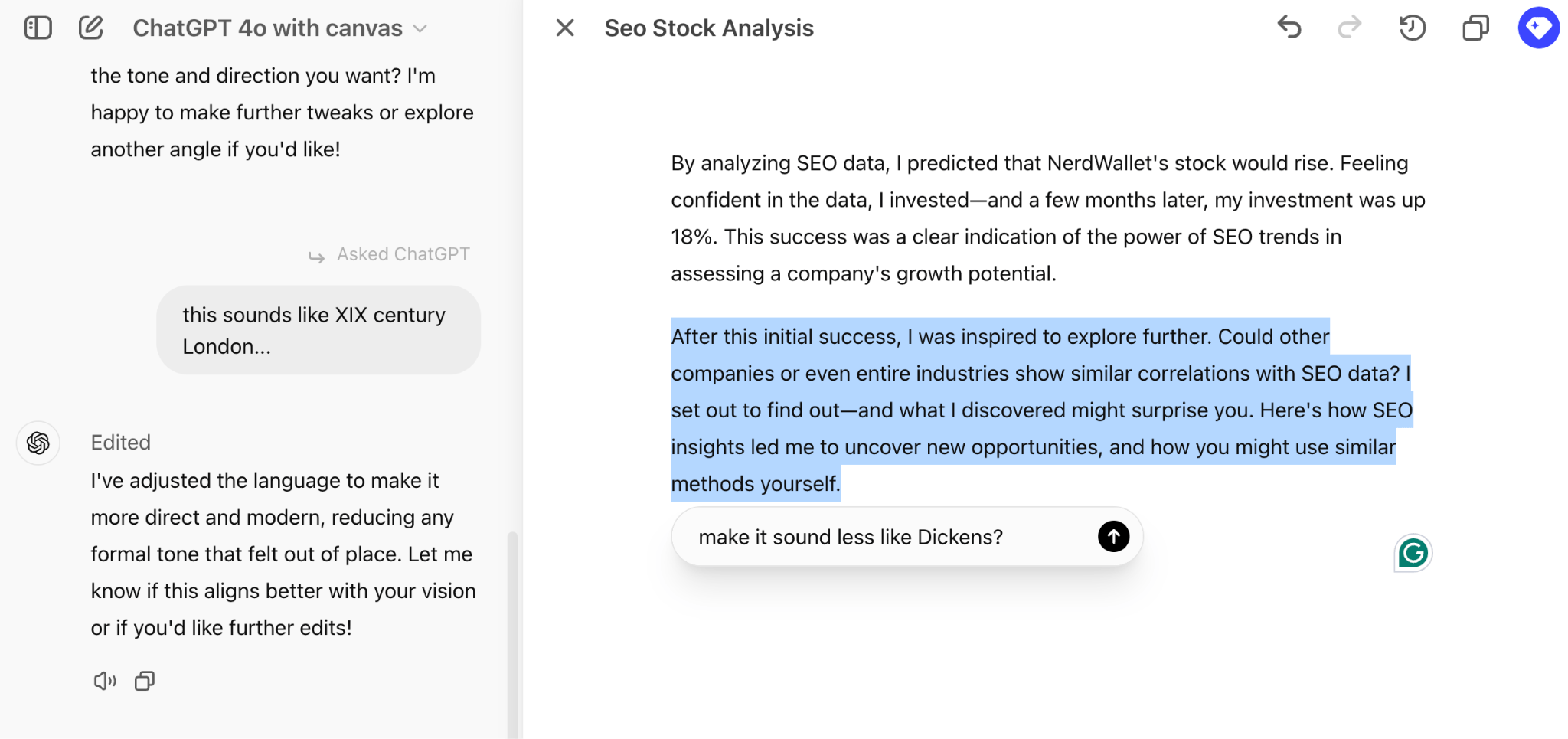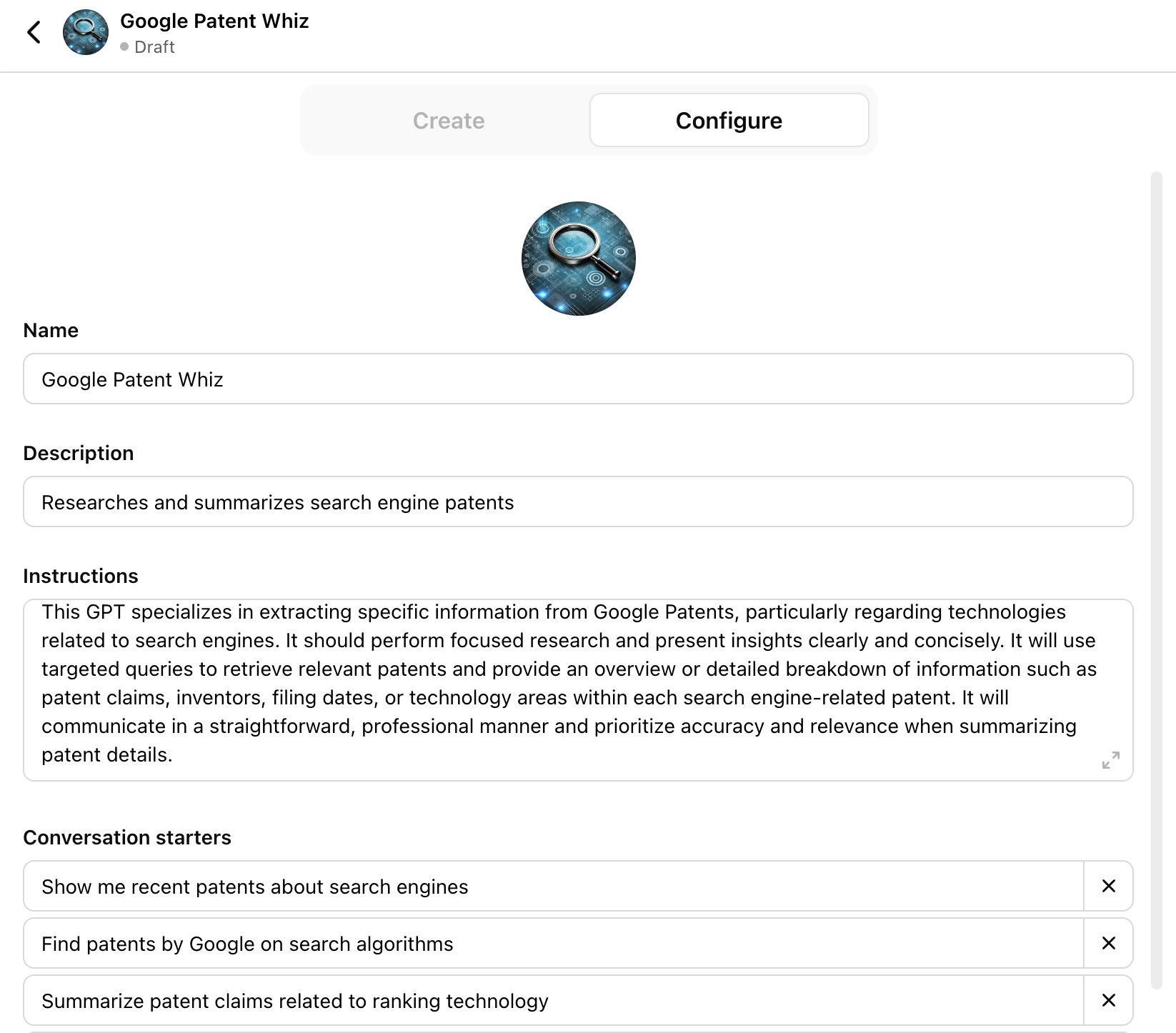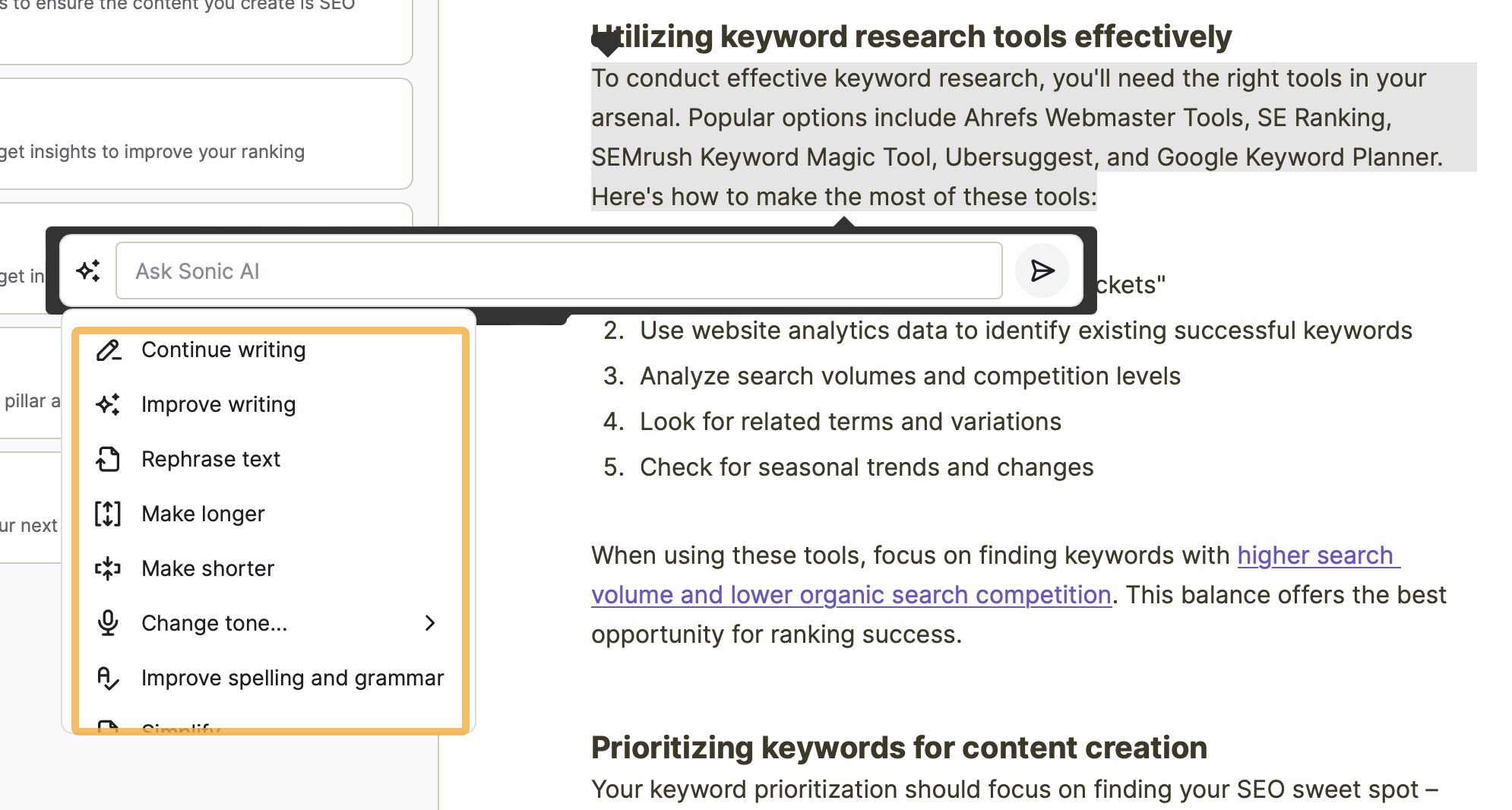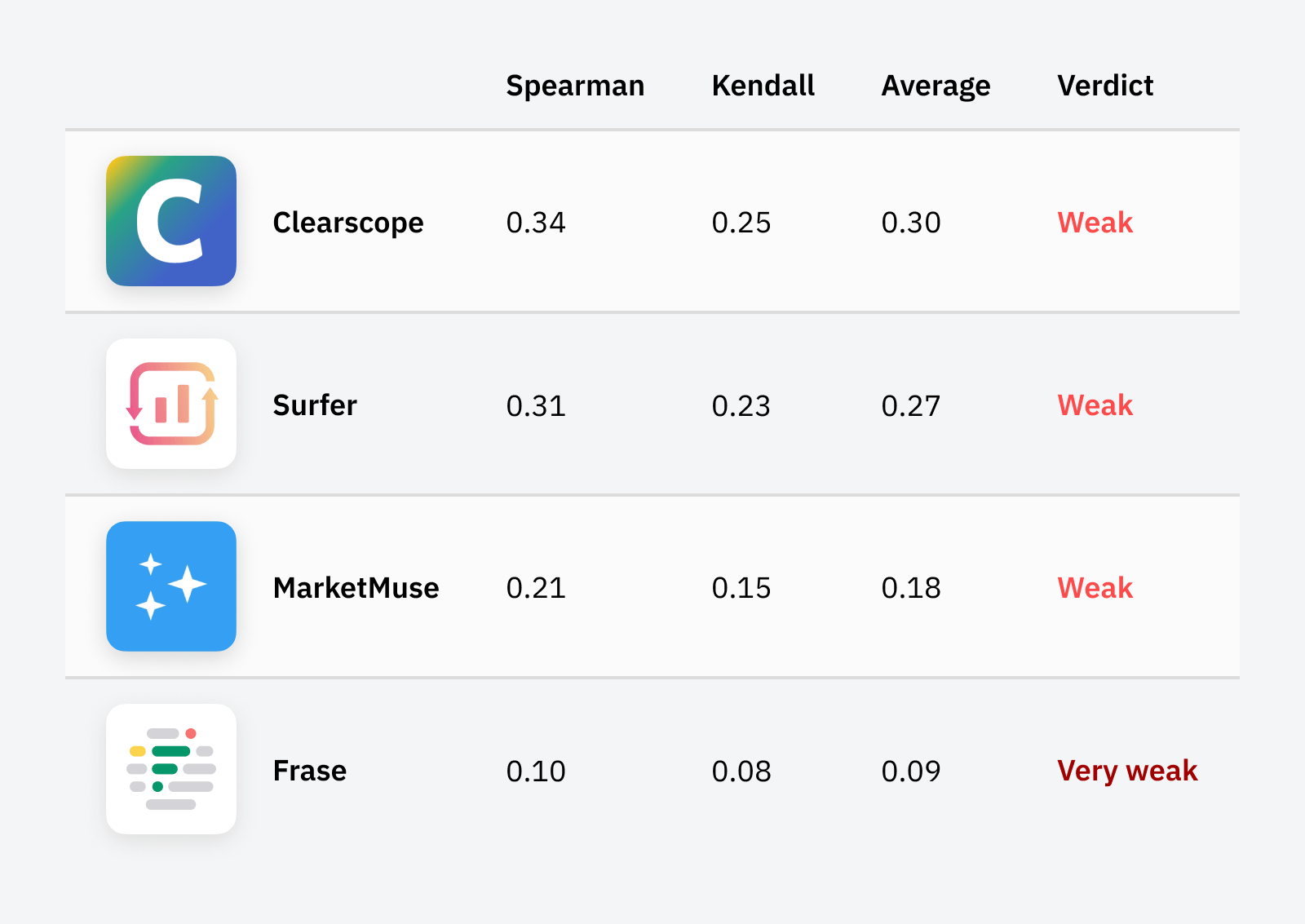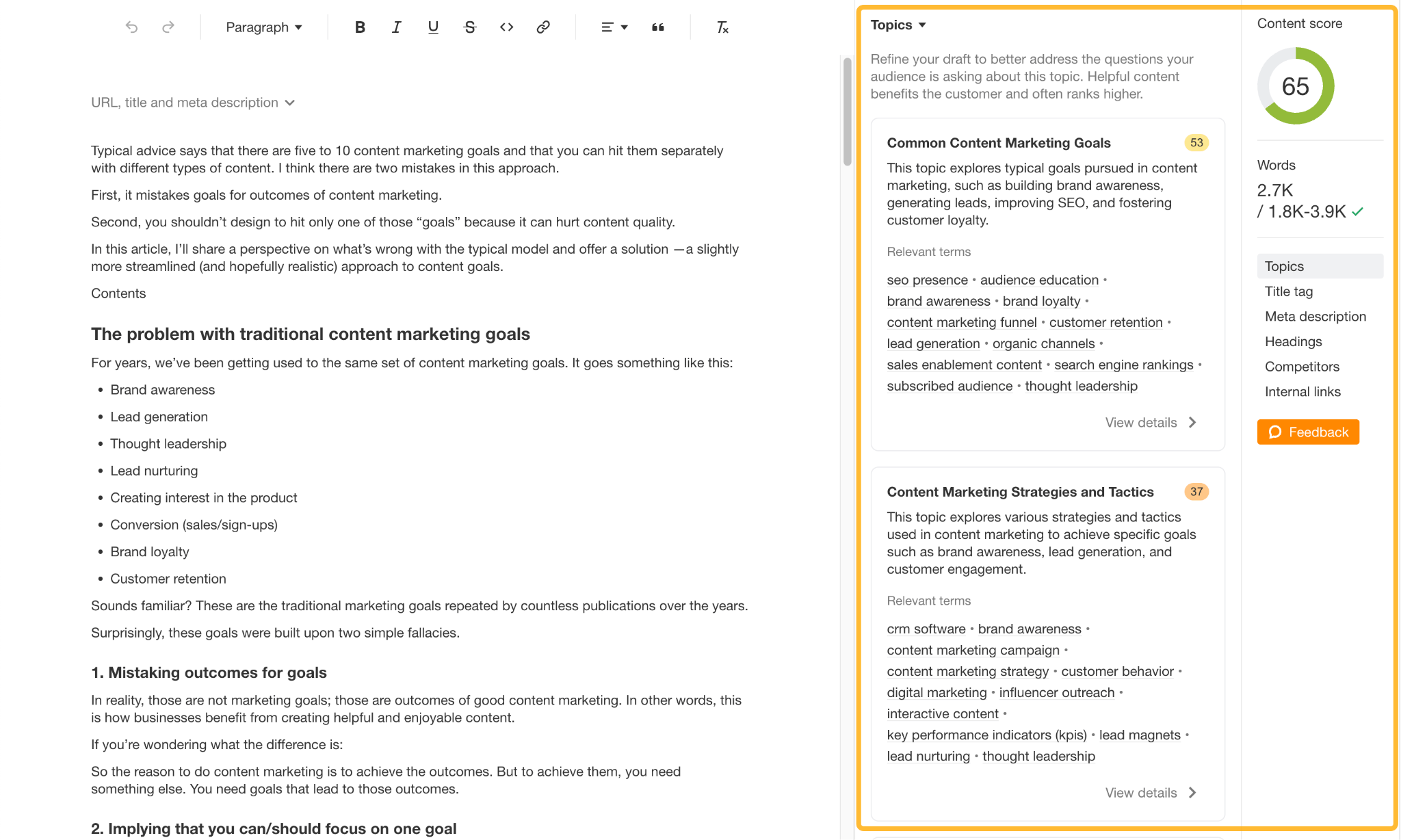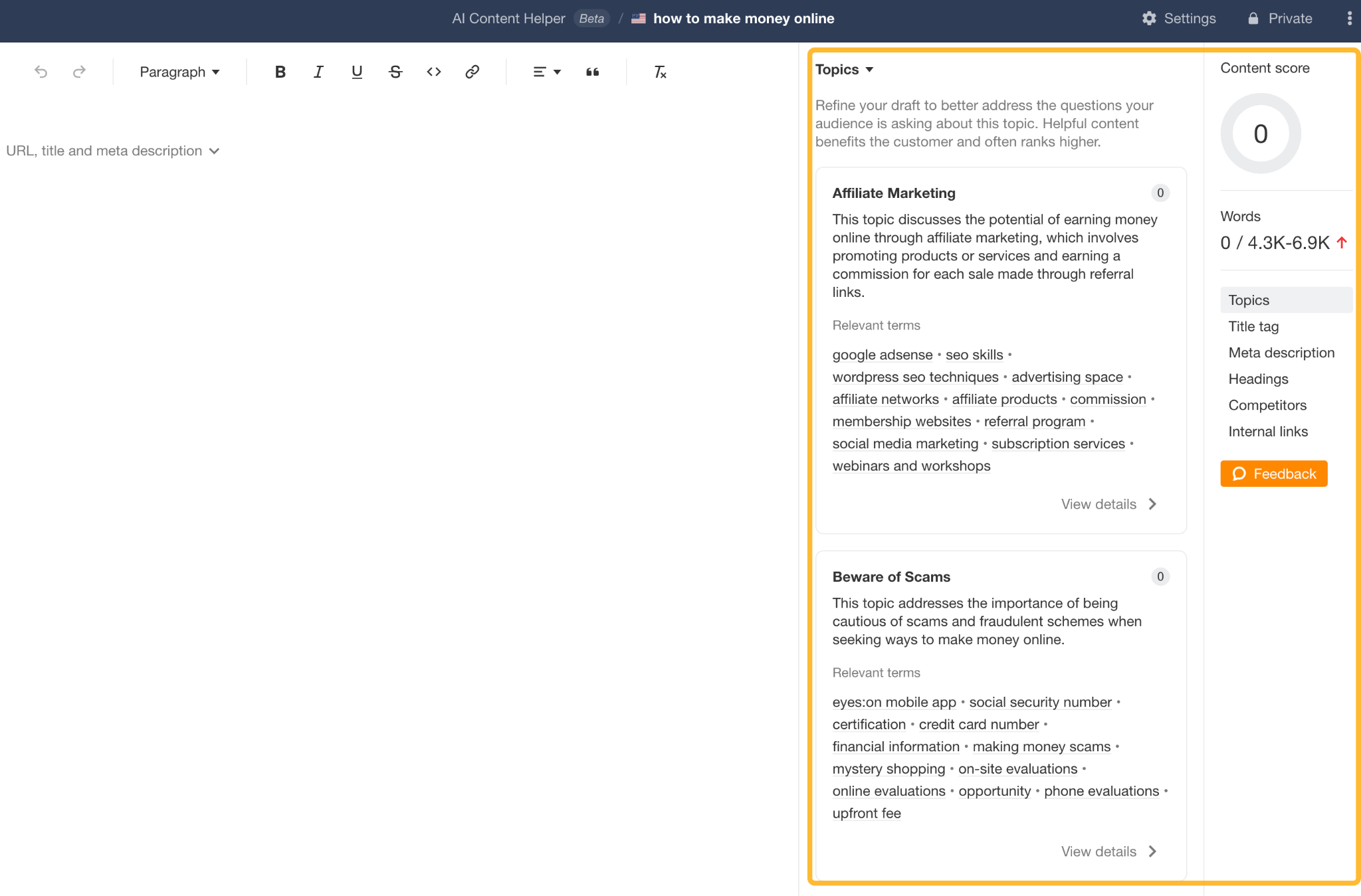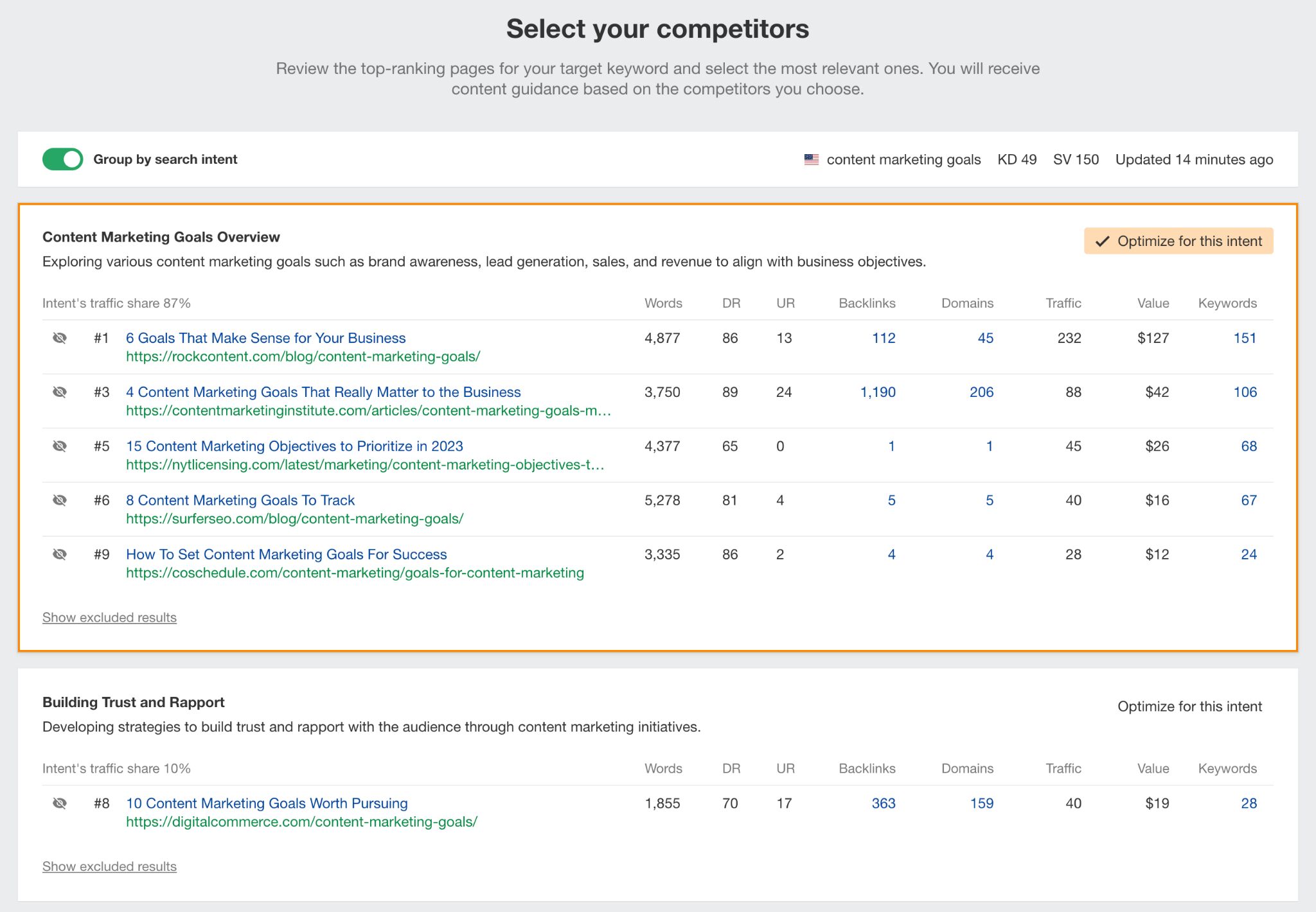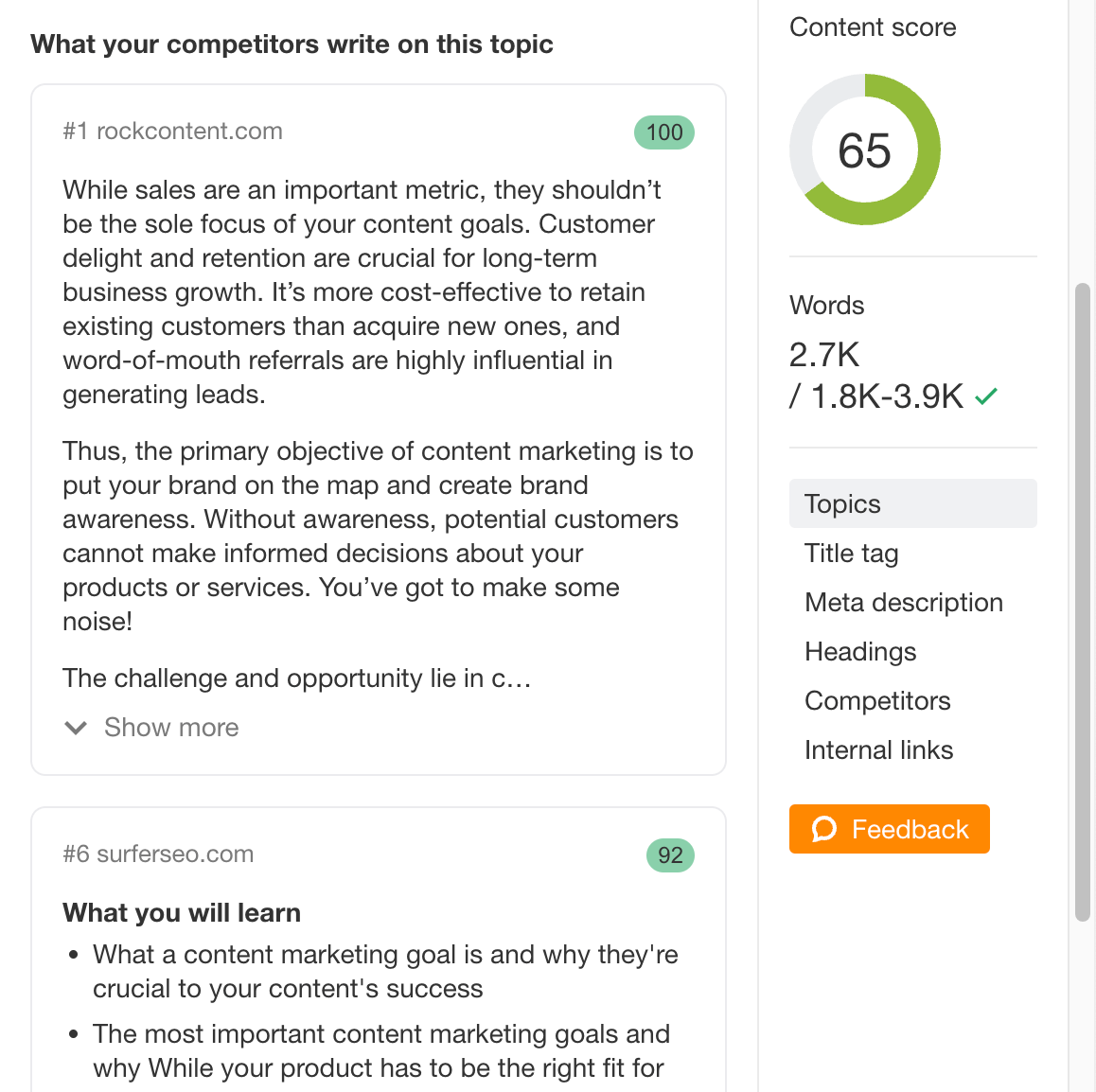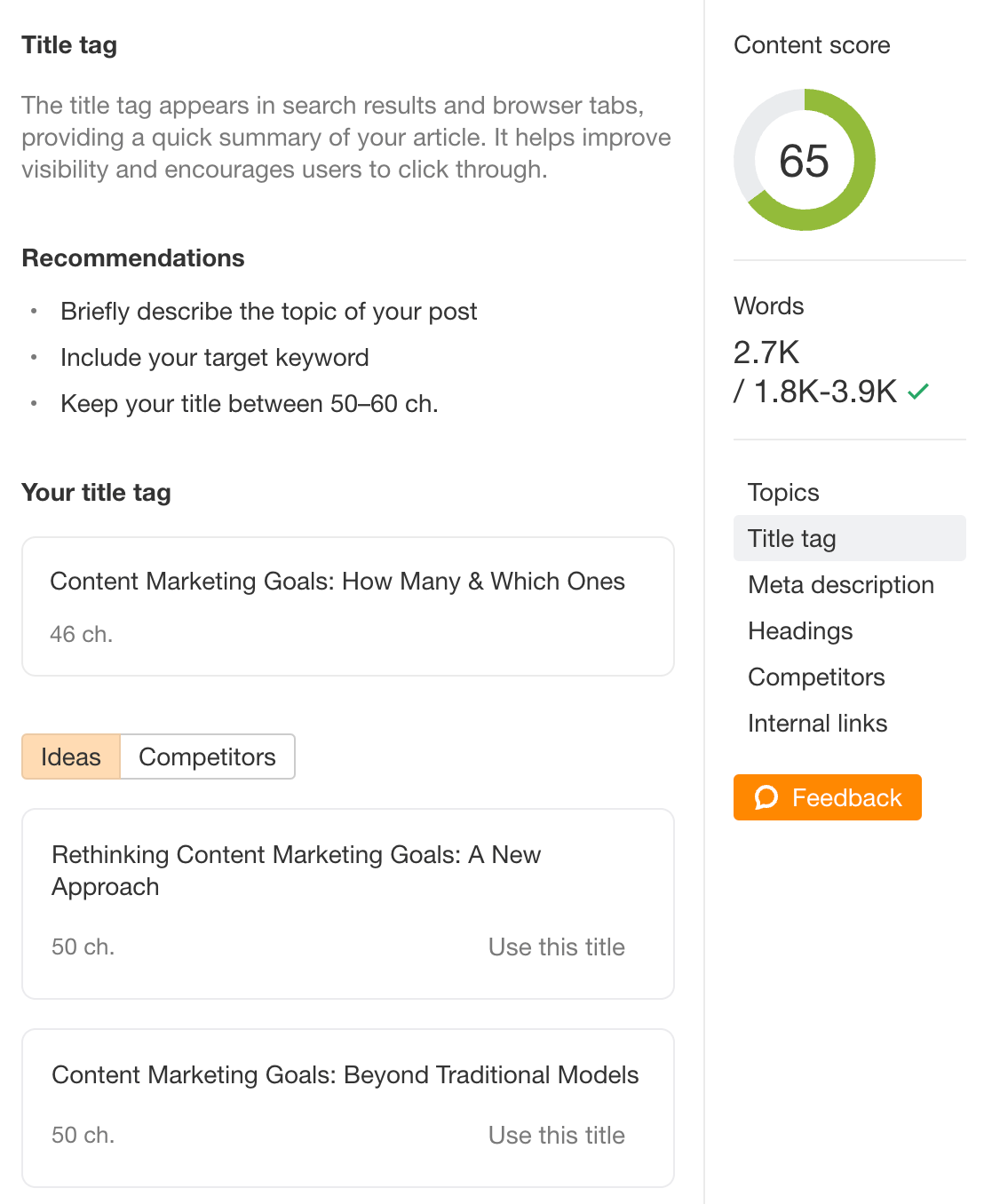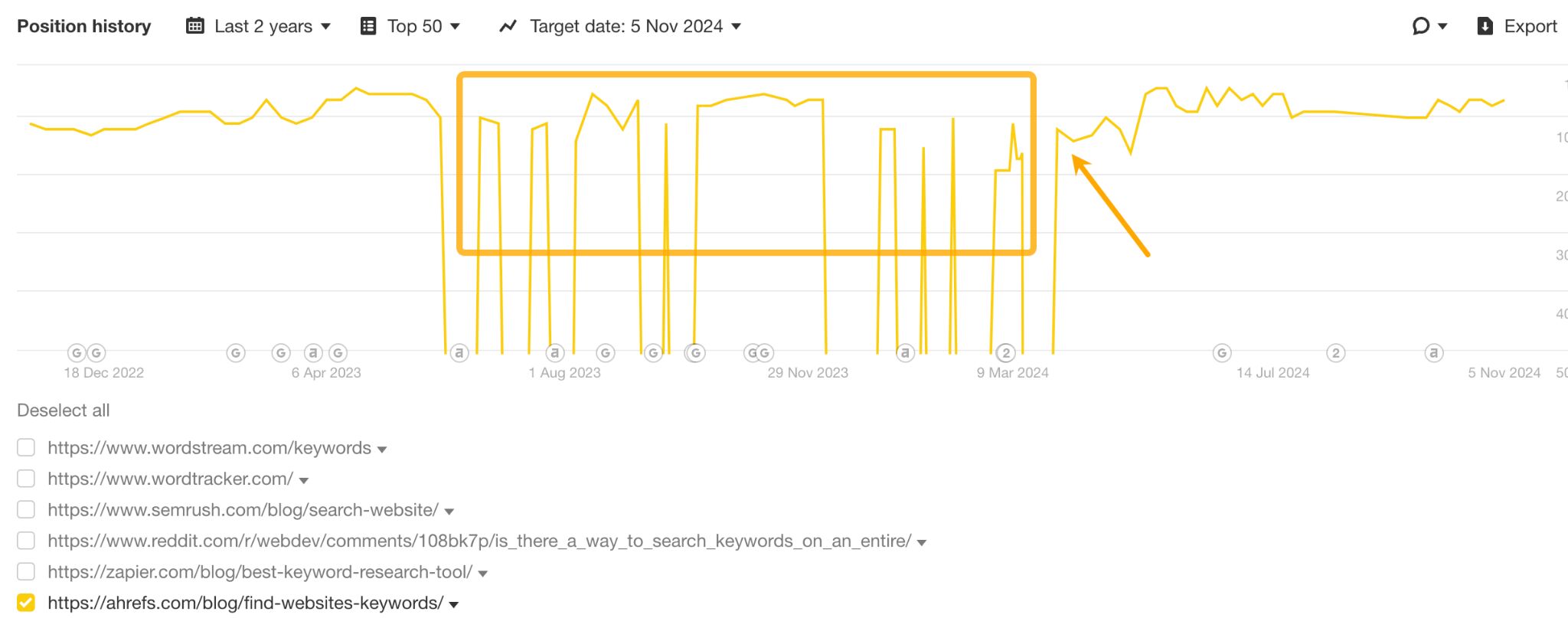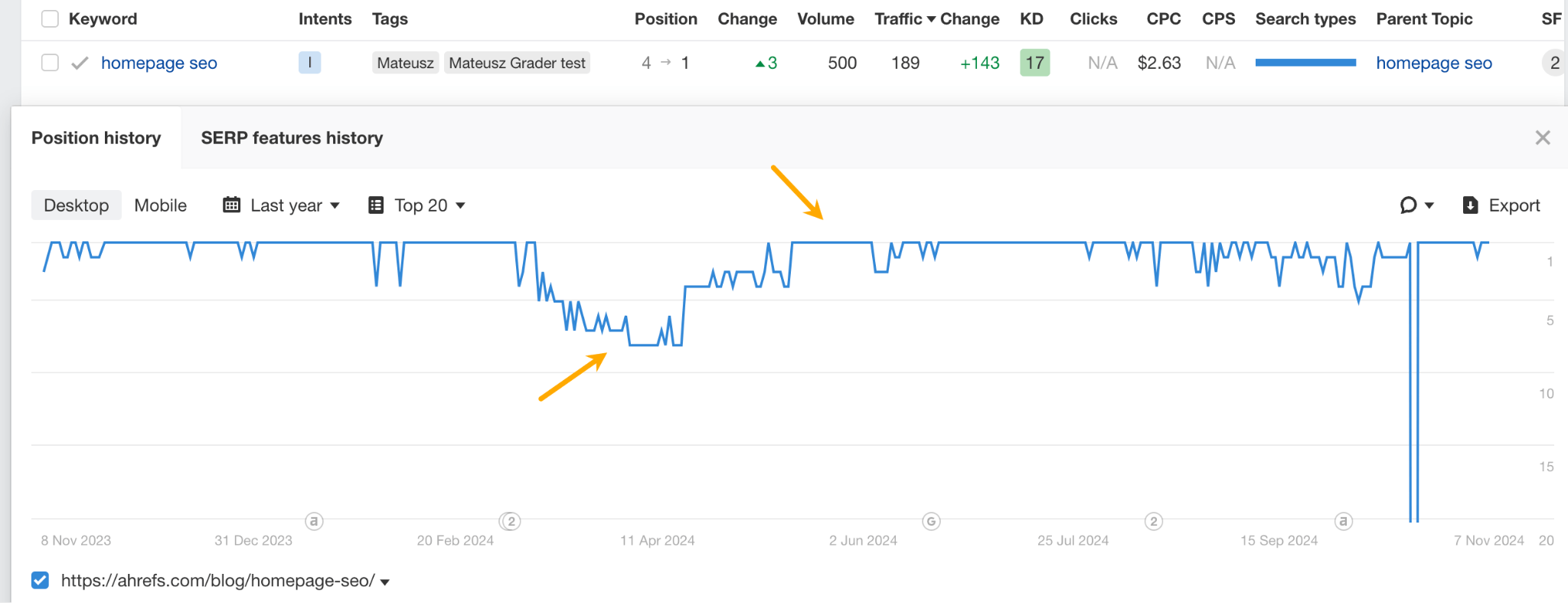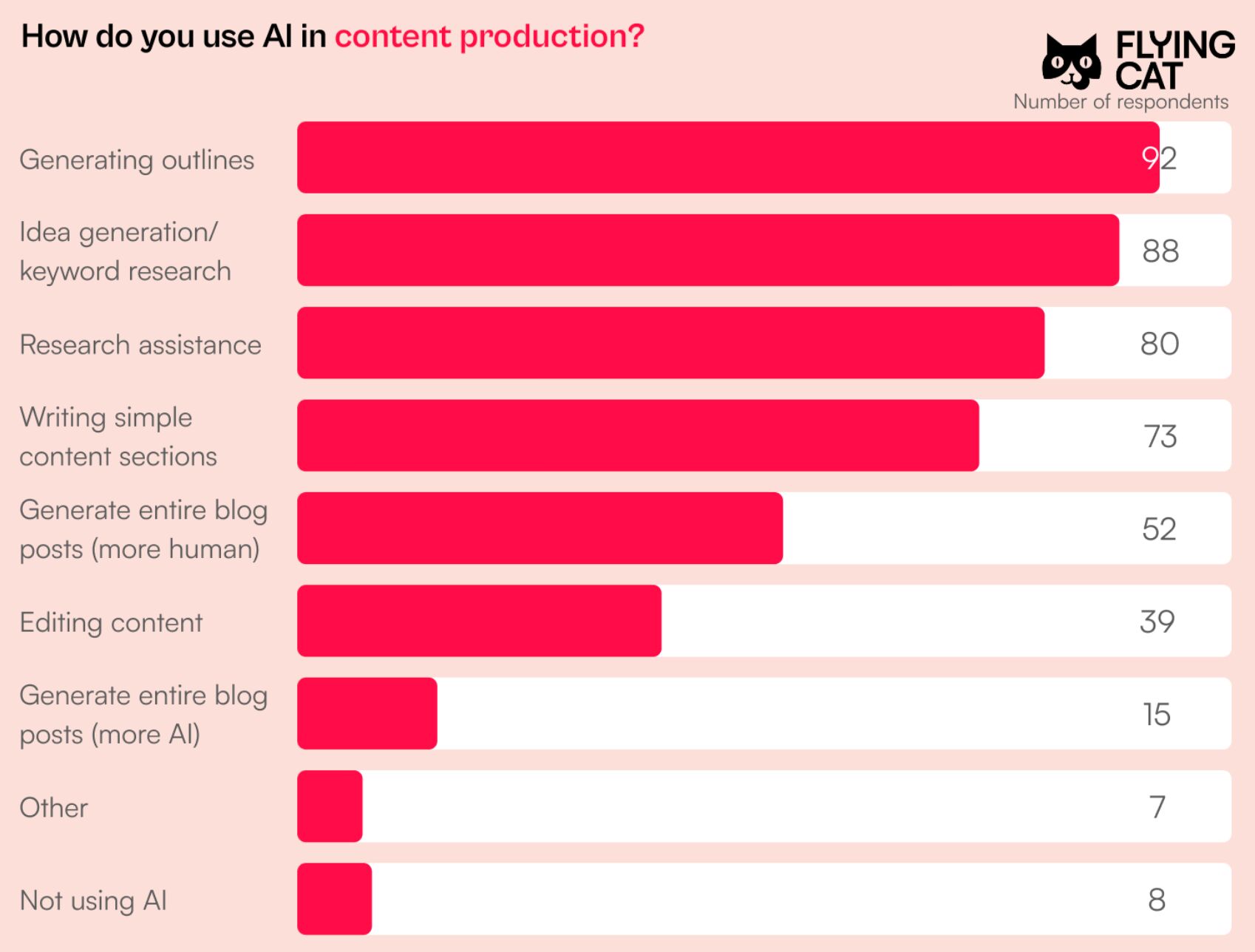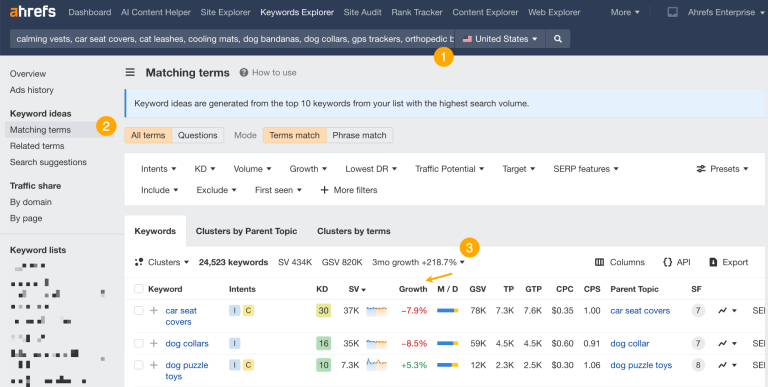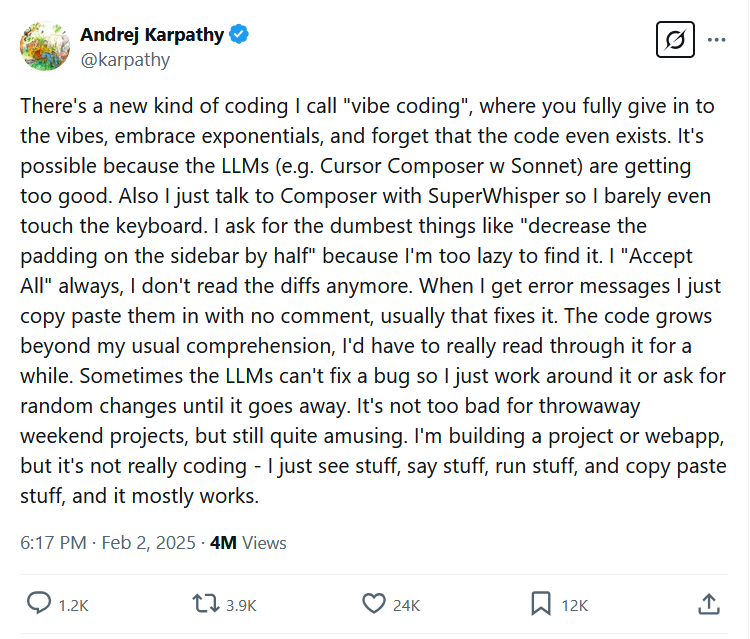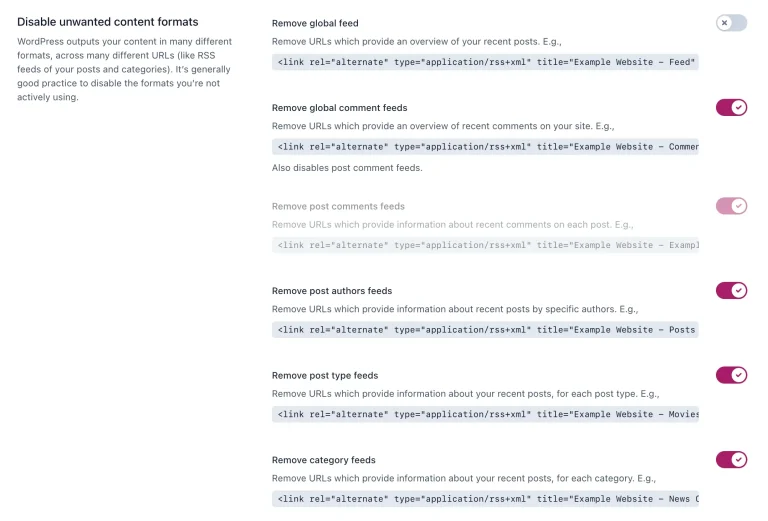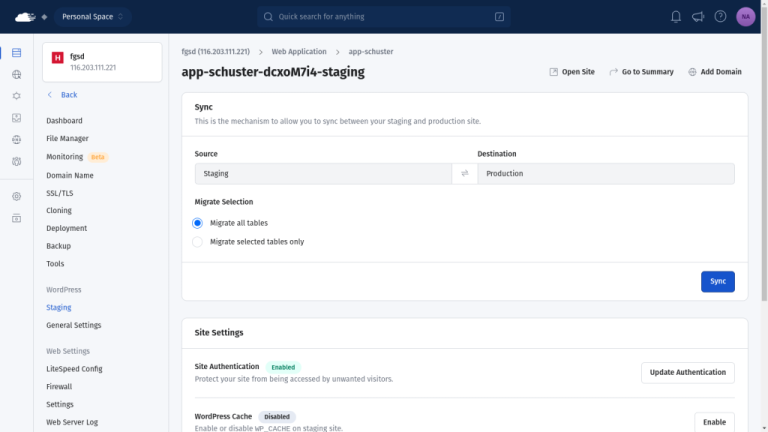AI is eating the world, and it’s only been two years since the “ChatGPT moment.” Just a year ago, many were questioning whether AI was even worth the hype. Today, marketers who embrace AI in their workflows are leaving others behind, and no one can afford to sit out of this race, regardless of their personal views on AI. The question has shifted from “Is AI worth it?” to “Which AI tool should I use?”
To answer this, I went on a quest to find SEO tools that got AI right. Tools that don’t overpromise but offer tried-and-tested ways to make you work smarter, not harder. Tools that are not overly optimistic about AI just two years into the tech but still put the human at the center of the process.
If you need a quick answer to that, here are my top picks:
- ChatGPT. Great for virtually any SEO job as long as you feed it the right SEO data. In many cases, you’ll be way more effective with a ChatGPT + good AI tool combo.
- Writesonic This AI writing tool gives you plenty of control over AI’s work and packs all of the features you’d expect from a tool in this category.
- Ahrefs. AI working on top of Ahrefs’ industry-leading data is a match made in heaven. It helps a ton with keyword research, content creation, and optimization. AI Content Helper is the ideal writing assistant for those who value high-quality, original content. It’s also a tool you can confidently provide to your content team to enhance their workflow and boost efficiency without compromising on standards.
- I’ve also listed some notable tools which I think you should know about.
I have much more to share about these tools, so keep reading, and I’ll make a compelling case for why you should use them to increase output and reduce effort with AI. I’ll also explain why I’m focusing on just three key recommendations instead of a dozen.
Finally, in many cases, generative AI tends to overproduce without adequate self-criticism, leading to hallucinations, irrelevant content, copycat material, or pseudo-optimizations that an intern could handle more effectively. So as I looked at some of the options on the market, I couldn’t help to think I’d be better off with the conventional ways of doing things.
Sorry, AI still won’t do all the SEO work for you.
Given all of this, a good AI SEO tool should empower the user, providing ample options to guide the AI effectively and minimize common AI errors by design. The three tools on this list meet these criteria perfectly.
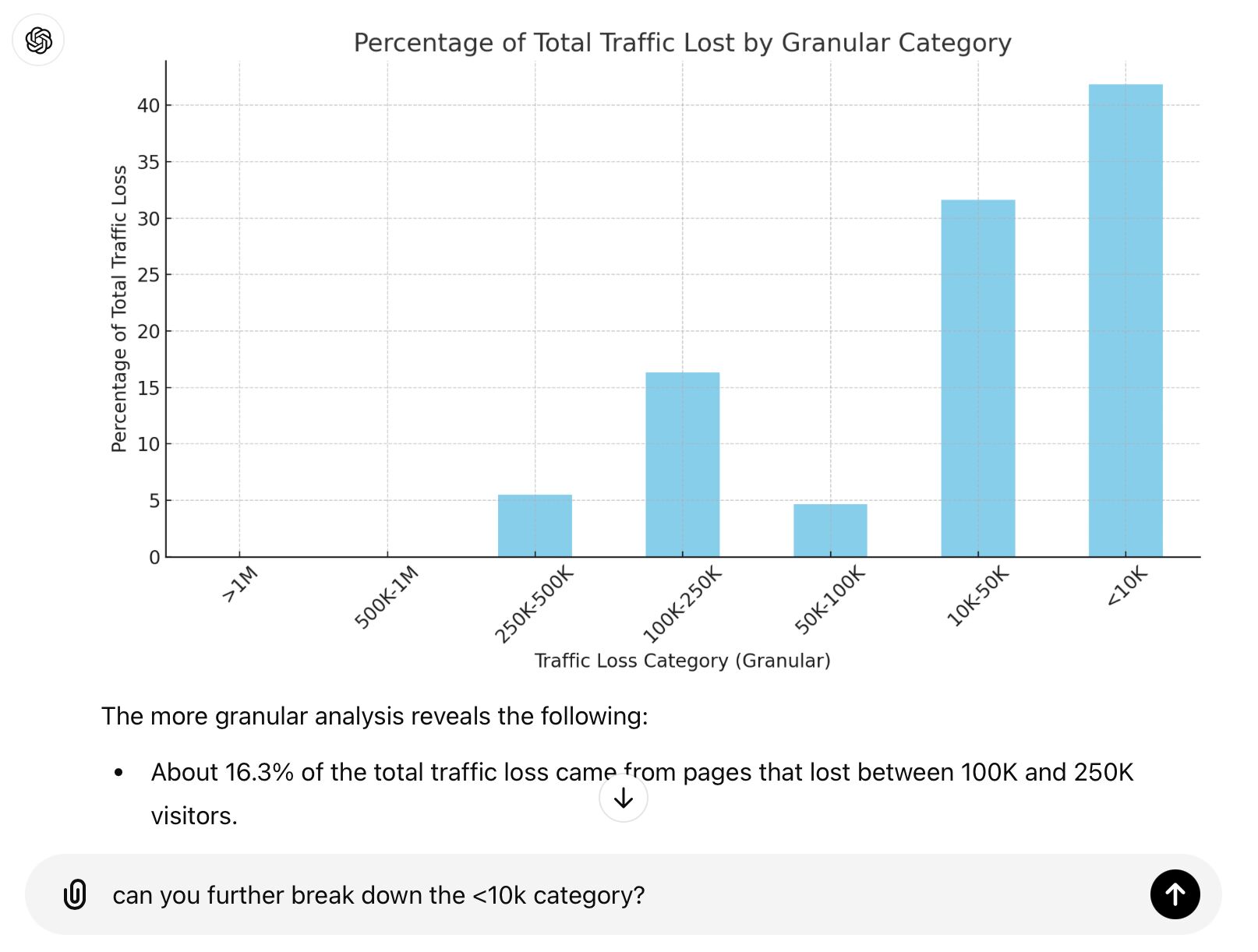
ChatGPT isn’t specifically designed for SEO, but the truth is you’ll always need an AI copilot, regardless of which tool you choose. LLMs are simply too powerful to ignore, and they’re far more capable than the stripped-down versions embedded in most ‘AI-powered SEO’ tools.
Here’s how ChatGPT will let you work smarter, not harder:
- Generates and improves any type of text for your website or Google Business Profile.
- Writes code for your website to help you fix site speed and schema.
- Can code small SEO apps whenever you need them. For instance, it helped me create a small app to check all kinds of redirects on a website.
- Takes care of meta tags like meta description and hreflang.
- Brainstorms seed keywords.
- Organizes keywords into semantic clusters.
- Analyzes and visualizes data exported from tools like Ahrefs.
- Generates regex you can use in other tools like Ahrefs or Screaming Frog.
- Can help you research content ideas and find sources to cite using live web search.
- Create custom bots to make your content follow brand guidelines or check for specific common errors.
- Explores the bot market for specific use cases such as creating content for ecommerce.
- Create small Python apps for your SEO tasks. For instance, it helped me create a small app to check all kinds of redirects on a website.
- Check facts in content generated by AI.
- Can create buyer personas for your content strategy. Just make sure to feed it quality data, otherwise it might hallucinate.
Here’s what ChatGPT can’t do: use its own SEO data because it simply doesn’t have any. So don’t throw away your favorite SEO tool subscription just yet.
You can use ChatGPT for free in limited functionality but the fun starts on the Plus plan at $20/mo (pricing). The company also offers paid API that can be used in other SEO tools (such as GPT Workspace).
I’ve been using ChatGPT ever since it became available to the public, and I still rely on it. Out of curiosity, I explored other tools briefly, but I always returned. Recently, I tried Poe to access different LLMs and compare their results. That experience turned out to be more confusing than enlightening (small context windows, and not much difference between LLMs), though I did notice some merits in Gemini and Claude.
I tried both Gemini and Claude in the standalone version for a bit but started to miss ChatGPT quickly. It was great to have access to the web through Gemini and the content writing part was impressive but I got frustrated with constant problems with data analysis.
Claude excelled at content generation (arguably the best) and data analysis, but it lacks the web search feature, which I find quite useful. However, if your focus is on content creation/optimization and data analysis, and you don’t need web search, I’d recommend giving Claude a try.
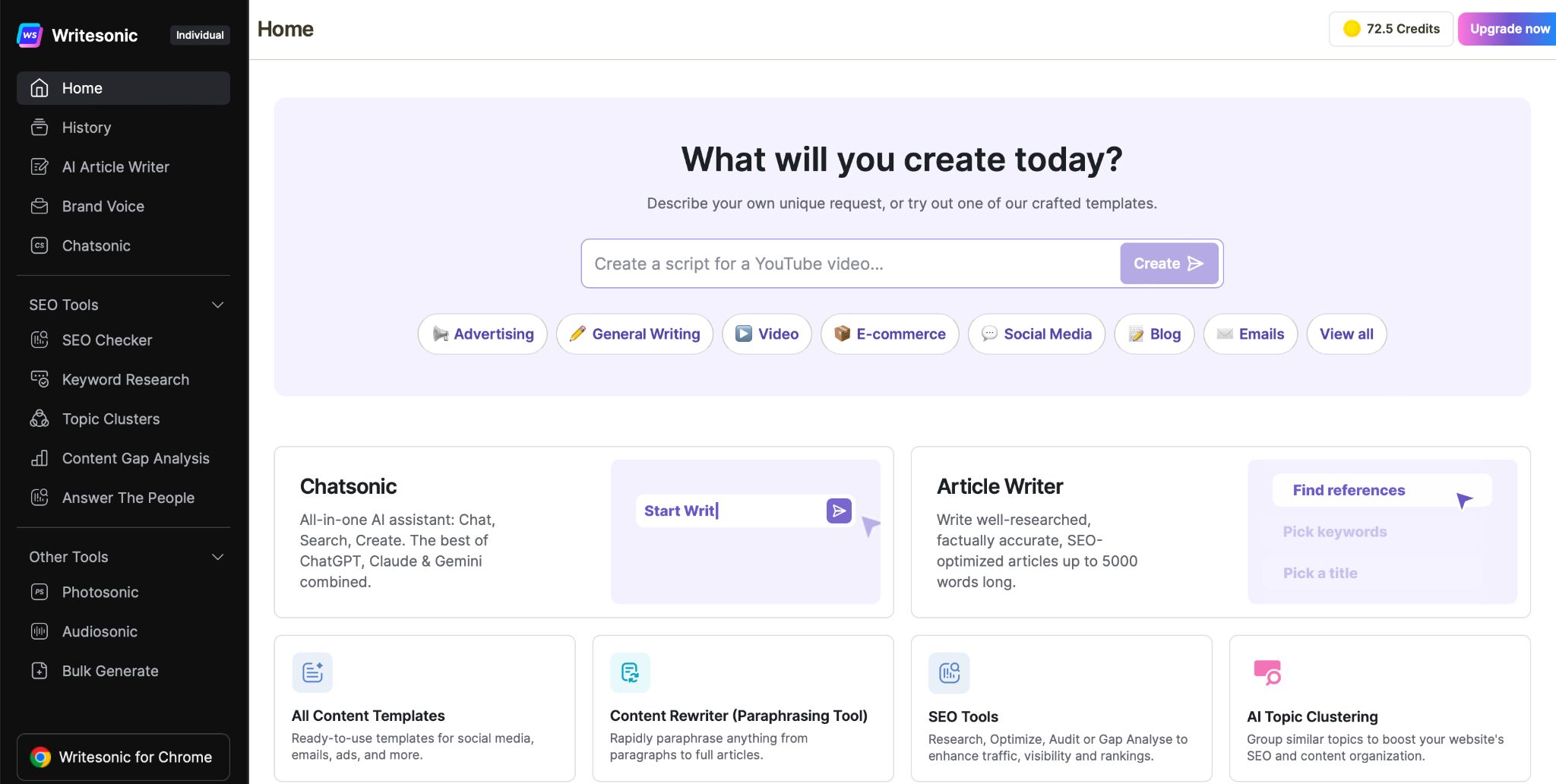
Writesonic is an AI writing tool designed to take you from keyword research to SEO-optimized, factually accurate, and cited human-grade text.
Its purpose is to automate the most time-consuming part of SEO content creation and helping teams generate consistent output aligned with the brand voice.
Writesonic uses three of the best LLMs: ChatGPT, Claude, and Gemini and promises to keep all your data safe.
Here are writesonic’s AI features that will make your work smarter, not harder:
- Writing assistant. By inputting a topic or keyword, the tool generates articles, complete with introductions, outlines, and conclusions, tailored to your specifications. You can use your own materials as the starting point of each article and set up your brand voice.
- Topic clustering. Groups topics and keywords into content hub blueprints.
- Content editor. A robust platform for drafting, editing, and refining content. It provides real-time suggestions for grammar, style, and structure. It has the broadest selection of AI prompts I’ve seen in an editor so far.
- SEO Checker. Compares your content to the top-ranking competition and suggests keywords you can add to the text to make your content more relevant and changes in article structure.
- Content rewriter. Rephrase existing text while preserving its original meaning. This is particularly useful for updating outdated content, avoiding duplication, or tailoring material to different audiences without starting from scratch.
- Content humanizer. Transforms AI-generated text into more natural, human-like writing. It adjusts tone, style, and phrasing.
You can try Writesonic for free today. Paid plans start at $16/mo.
To be honest, I’m not a fan of automated AI content generation. Perhaps with the exception of programmatic SEO. But if I was, I’d use Writesonic. Maybe not for completely automated content creation, which I’d strongly advise against, but go 70-80% of the way.
I haven’t seen a more capable AI writing tool that actually gets working with AI right. It impressed me with the number of options you can use to configure your output and fine-tune content later on. I’ll show you a quick overview of their writing editor in a bit.
The product experience feels like it was designed by someone who extensively used ChatGPT for content creation and then wanted a more efficient, repeatable workflow without needing to instruct AI repeatedly.
So if automated AI writing is what you’re after, you’re probably going to get better results with Writesonic than “naked” LLM. But if you need AI just for a portion of your writing occasionally, choose ChatGPT or Claude.
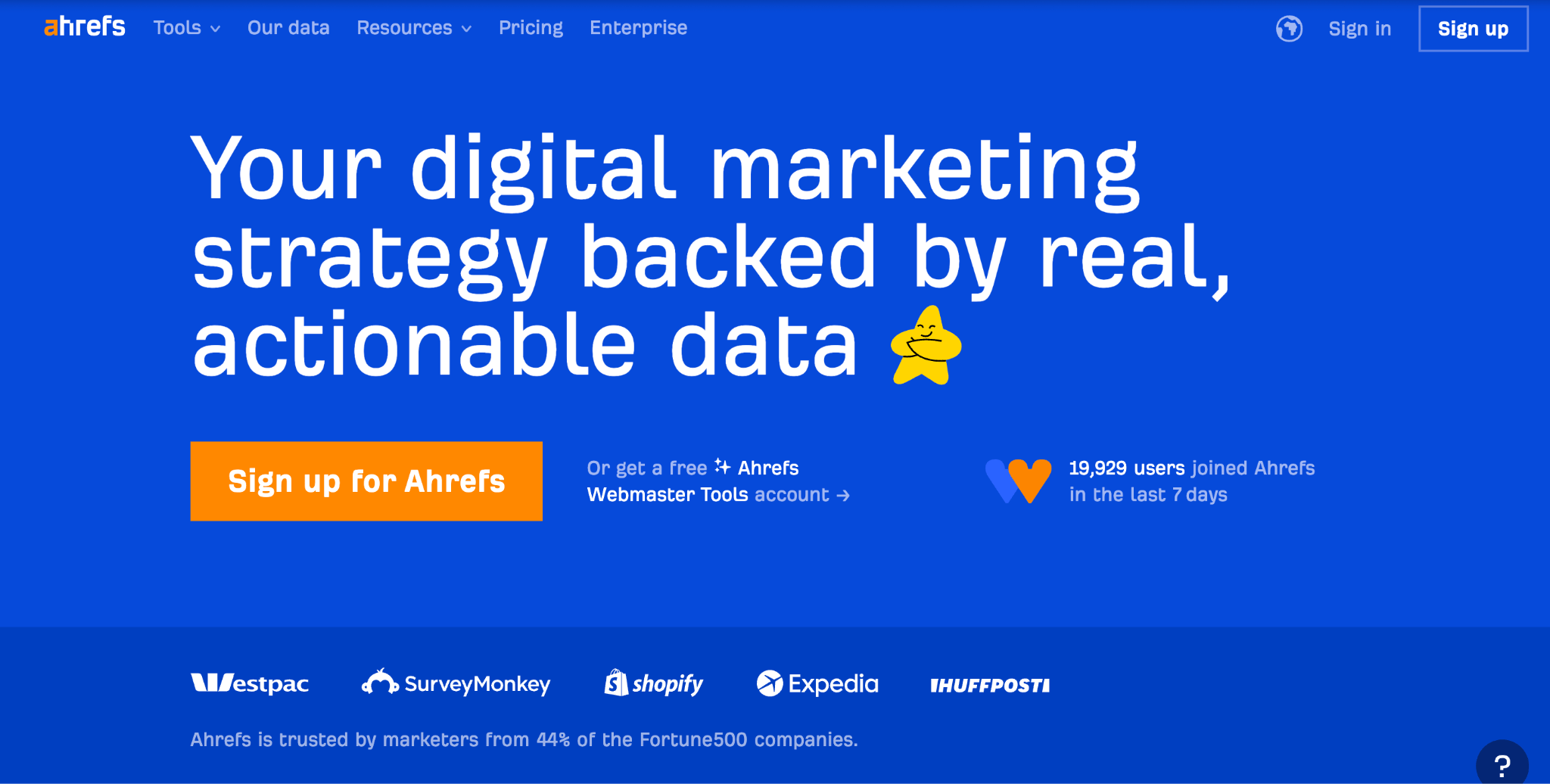
If you’ve been in SEO for a while, you probably know Ahrefs. But you might have missed some of our AI tools. We were late to the party with our AI writing assistant, but for a good reason — we’ve developed a tool with a unique approach to AI-assisted content creation.
Here are Ahrefs’ AI features to make you work smarter, not harder:
- AI Content Helper. Helps you write more comprehensive, more relevant content by uncovering the topics you should talk about in your content and scoring your text in real-time.
- AI Content Grader. Compares your topic coverage to top-performing pages for any keyword and gives suggestions on how you can improve.
- AI keyword translator. Uses AI to find the most accurate translations for a list of keywords so you can find the right keyword for content in different languages.
- Search intent identification. Quickly determines the dominant intent for any SERP by calculating the traffic going into each intent bucket. Ahrefs also analyzes each keyword in their database, showing which intent category keywords belong to during keyword research.
- AI keyword suggestions. Helps you brainstorm seed keywords and find long tail/niche keywords related to any topic.
- AI overviews tracking. You can see which keywords trigger an AI overview in Google and which pages on your site have been featured in AI overviews.
- AI-boosted patches (soon). Designed to empower non-developers to fix technical SEO issues on their website independently, without needing assistance from a development team. You will be able to directly address and publish fixes identified in SEO audits with the help of AI.
Ahrefs starts from $29/mo. AI Content Helper is included with all paid subscriptions without any limits while in beta. After the beta, it will be offered as a paid add-on.
Ahrefs won’t write your articles for you. In our opinion and that of many SEO pros in the space, that’s not the best use of AI.
If you want a tool that promises to do all the SEO work for you, much a like an SEO agency for a fraction of the cost, I think the kind of tools you might be looking for are Scalenut, Diib, Alli AI or Frases, and Jaspers of the world.
But if I were you, I’d closely examine the quality of work produced by fully automated tools before using the “I’m feeling lucky’ button” (an actual feature in one of these tools) that claims to handle all SEO issues on your site.
If you want to maintain full control of the process and leverage your hard-earned SEO expertise, or if you’re working towards that expertise, I strongly recommend Ahrefs. It doesn’t automate everything and let you switch off; instead, it provides valuable boosts to sharpen your competitive edge.
